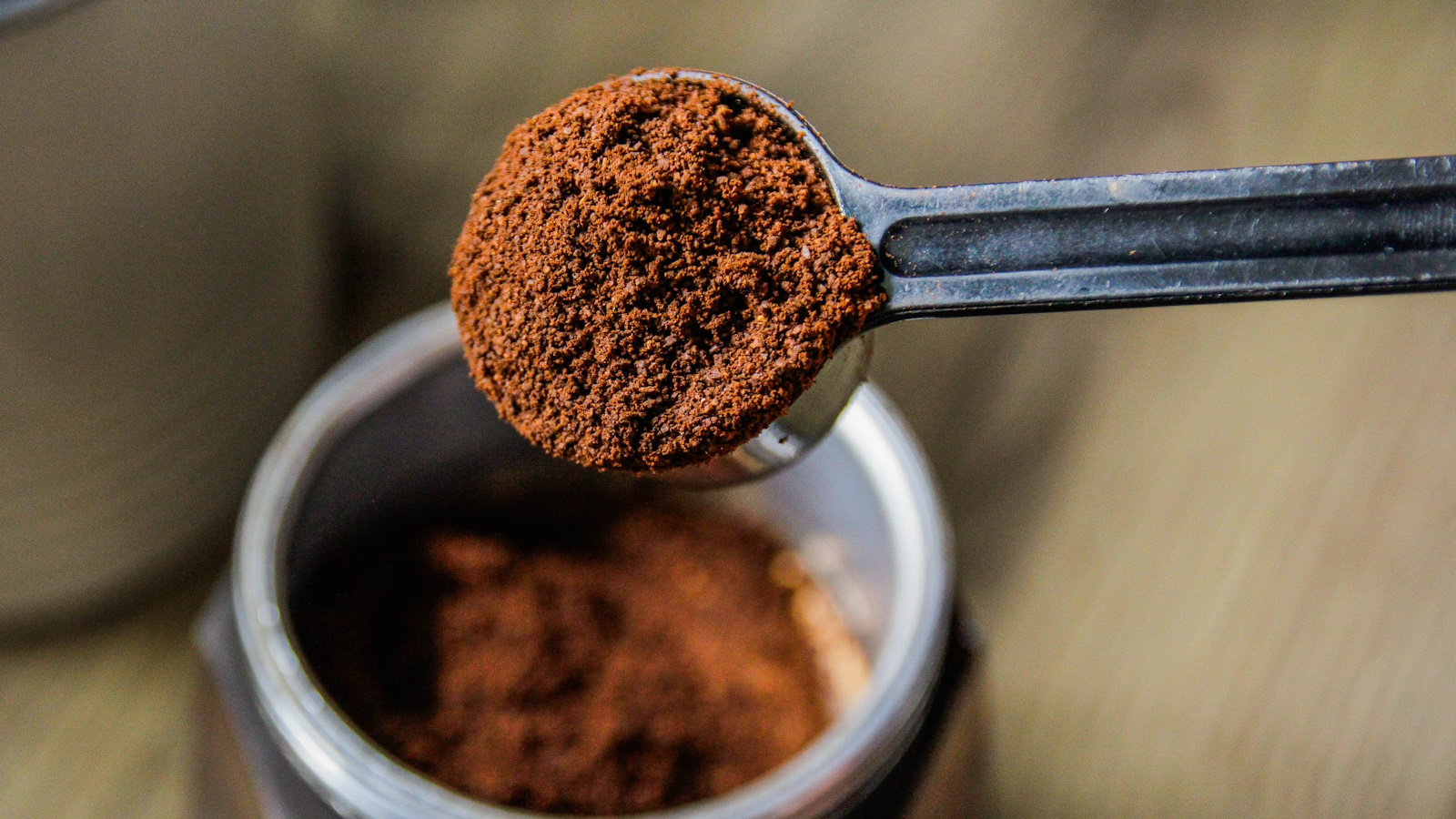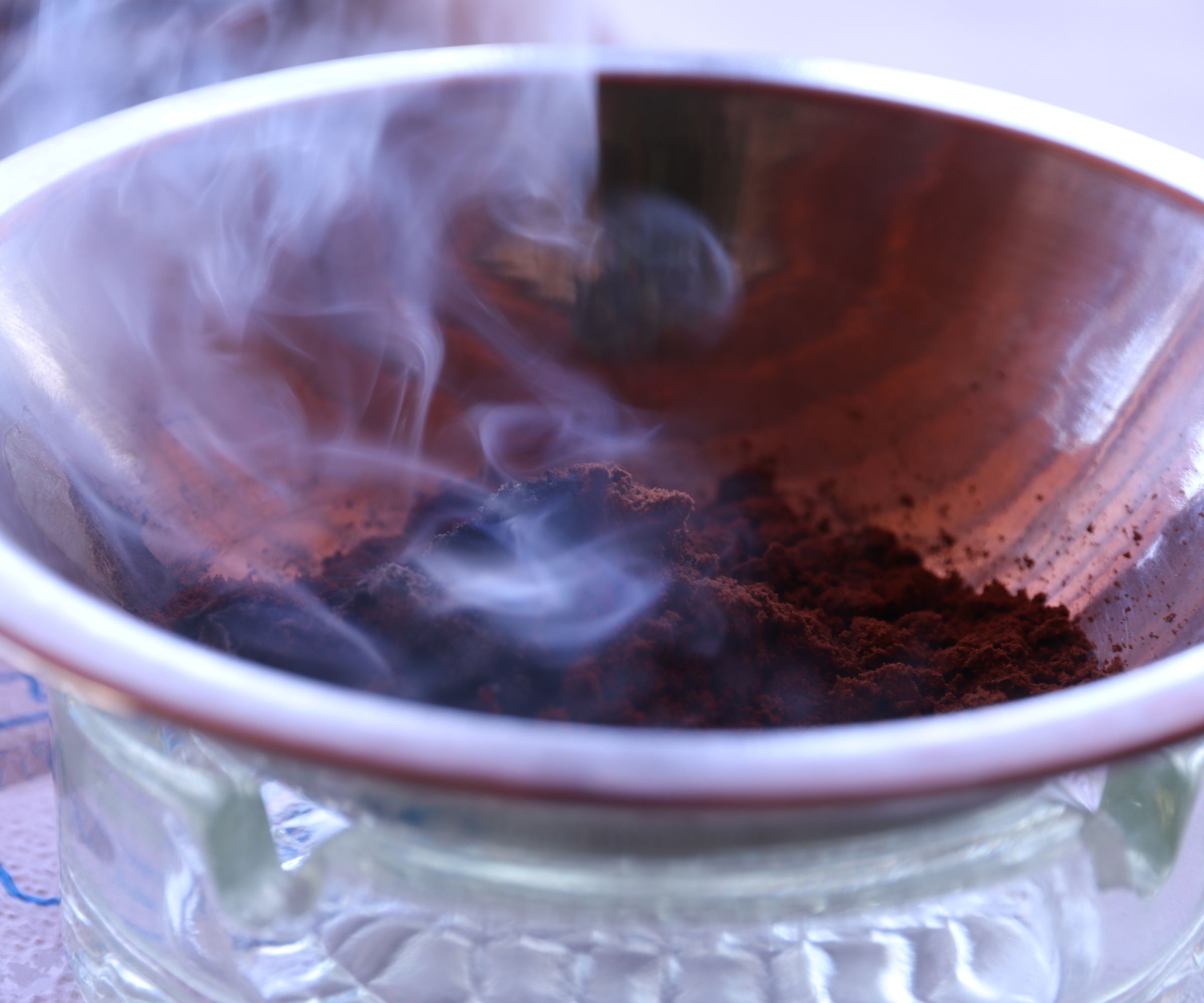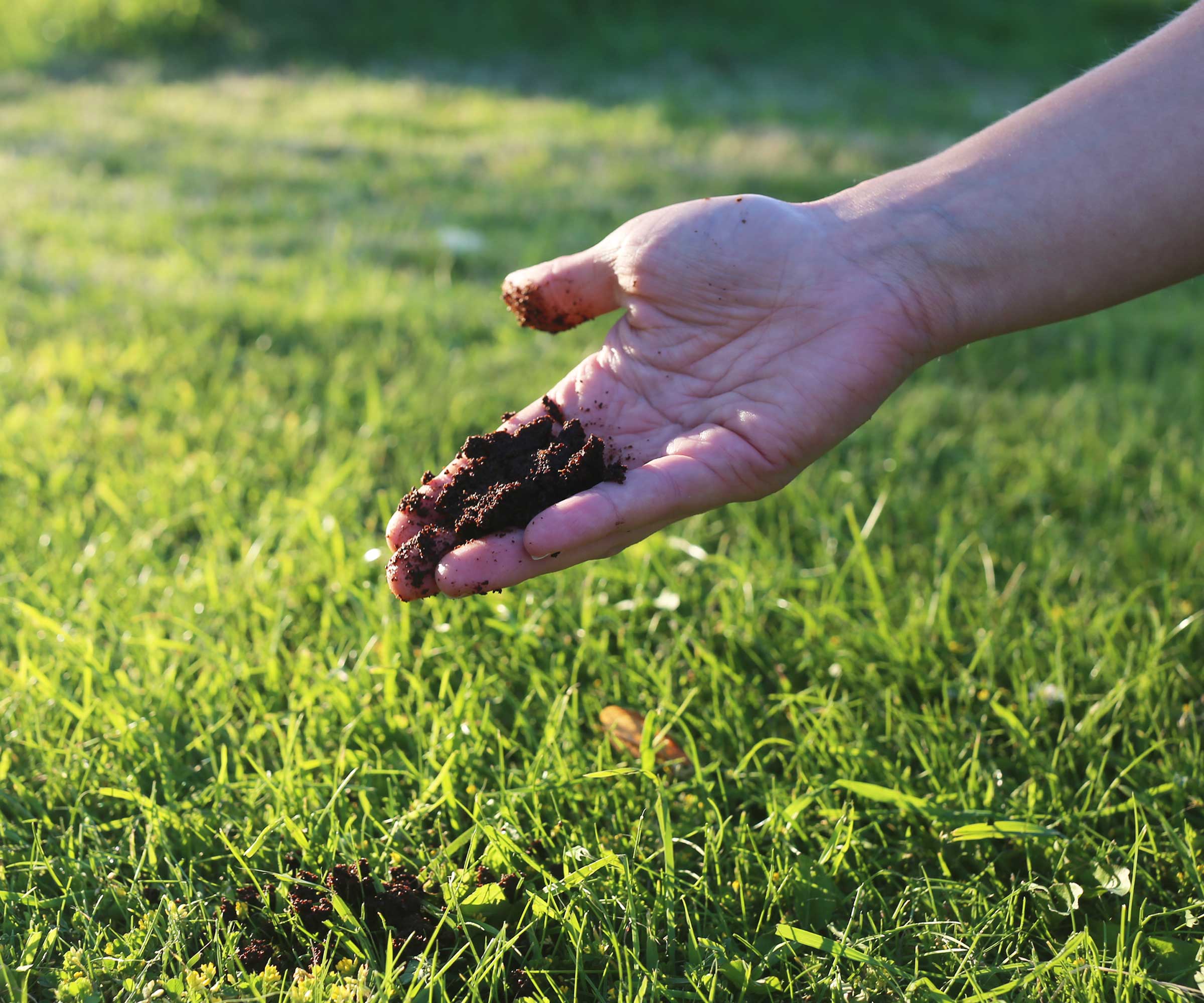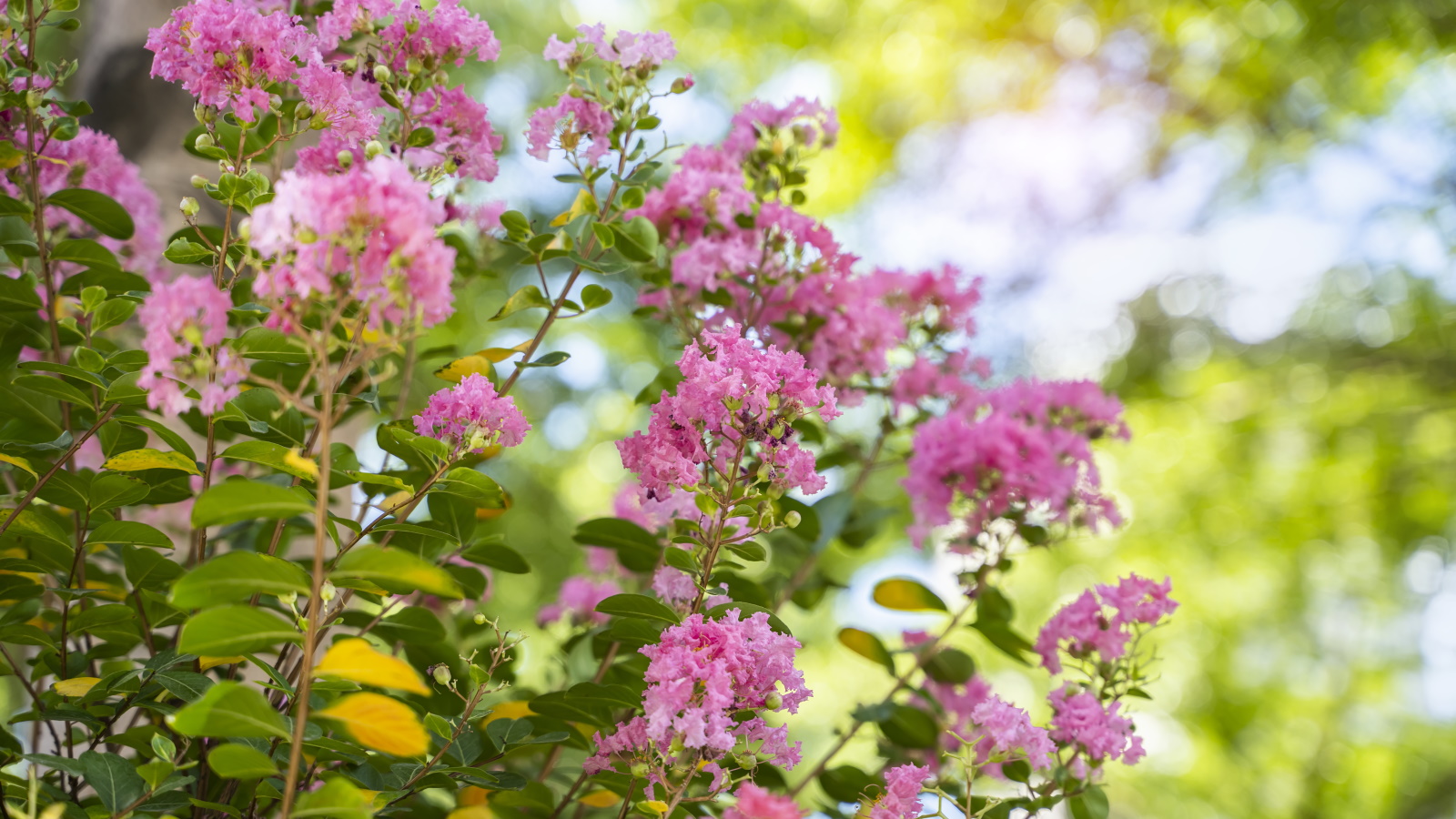Do coffee grounds keep bugs away? Experts have the answers
Coffee grounds may be your new go-to for pest prevention – here's why


Lola Houlton
As summer arrives with a flourish, many of us are starting to enjoy meals outside and windows and doors are often left open to let in a fresh breeze. However, these seasonal activities usually come with an increase in many pesky pests, making this time of year one of the best times to discover natural pest control methods to ensure your home and yard remain bug-free.
We already know that coffee grounds can help with plant growth, both indoors and out, and can even help with cleaning your furniture, but did you also know that coffee grounds create a scent that garden pests hate?
Below, experts share their views on the effectiveness of using coffee grounds to keep bugs away, and the different ways burnt coffee grounds can be used to keep pests out of your home and away from your favorite plants.
Do coffee grounds keep bugs away?
'The strong aroma of coffee is pleasant to many humans but repulsive to various insects; burning coffee can get rid of mosquitoes, ants, slugs, and certain beetles,' says Kayla Stavridis, from Barista HQ. 'The nitrogen-rich composition of coffee grounds also makes them somewhat toxic to some insects, further enhancing their repellent properties.'
How effective is burning coffee grounds?

Guy Halverson from pest control company Truly Nolen says that there have been a number of studies to test the effects of burnt coffee grounds on different bugs.
'Coffee grounds contain compounds such as caffeine and diterpenes, which can act as a natural insecticide. They have a strong scent but become even more potent when burned. The strong, powerful scent contributes to a smoldering effect that will fight off pests. They also work by masking the scents that attract bugs, this makes it harder for the bugs to locate their targets.'
Jeremy Yamaguchi, the CEO of Lawn Love also adds: 'Coffee grounds can keep certain pests away but are not effective against all types of pests. They can repel bugs that have a strong sense of smell and are deterred by potent smells, which unfortunately can sometimes mean good pollinators like bees. They can also physically keep soft-bellied pests away, like slugs, snails, and bugs like aphids due to the coarse nature of the grounds.'
However, coffee grounds aren't a one-size-fits-all solution and there are varying degrees of effectiveness in using burnt coffee grounds. For more comprehensive pest control, we recommend integrating multiple strategies, combining natural remedies like coffee grounds with professional treatments when necessary. This integrated approach ensures thorough and effective long-term pest management.
How to use coffee grounds to get rid of bugs

There are a number of ways you can use burnt coffee grounds as a bug repellent, and you may find it helpful to try out different methods depending on the type of bugs you have.
However, you will need to prepare the burnt coffee grounds before you can create these natural insecticides. You can buy fresh ground coffee bags from Amazon, either brewed or burnt.
To burn your coffee grounds, use them as you would normally when making coffee at home with one of the best French presses, but then brew the same grounds a second time. After a double brew, toss the grounds in a dry pan to ensure the fragrance is enhanced and extracted from the coffee.
Once you've done this, there are a few ways the coffee can be applied to target certain pests:
- Direct application: 'Spread used coffee grounds around outdoor seating areas or along the perimeters of your home where you notice ants or other pests,' advises Kayla Stavridis. 'This method is especially effective for deterring ants, as they dislike walking over coffee grounds.
- In the garden: 'Sprinkle coffee grounds around your plants to help keep pests away. Coffee grounds are abrasive and acidic, deterring snails and slugs from approaching your plant beds.
- Create a barrier: 'For areas like doorways or windowsills where you might see pest activity, placing a line of coffee grounds can act as a barrier. Most insects dislike crossing over the grounds due to their texture and smell.
- Make a spray: 'Once the coffee grounds have been burnt, you can mix them in a spray bottle with water to apply to the problem areas.
- Indoor use: 'If you're dealing with pests indoors, consider placing coffee grounds in small dishes or bags in corners or cabinets where pests are noticed. Just be mindful of the potential for mold growth if the grounds begin to retain moisture.'
Hula Home Continuous Spray Bottle | Was $14.99, now $7.99 at Amazon
Use different methods for different bugs

A.H David, owner of Pest Control Weekly explains the effectiveness of coffee grounds as a pest deterrent and best application techniques to use will depend on the bug.
- Ants – Coffee grounds can get rid of ants due to their strong scent and acidity. Specifically, sprinkling used coffee grounds around the perimeter of problem areas can disrupt the ants' scent trails, making it harder for them to navigate and significantly reducing their presence. Ants communicate the location of a food source through pheromone trails, so disrupting these with this smell ants hate can throw off their communication and navigation, preventing others from being attracted to your home.
- Slugs and snails – Coffee grounds create an effective barrier against soft-bodied pests like slugs and snails. These pests find the texture and components of the coffee grounds unpleasant and avoid crossing them. This has been particularly useful in protecting plants like hostas and lettuce by getting rid of slugs and snails.
- Mosquitoes, bees, and wasps – Coffee grounds can also be used as a DIY repellent for flying pests like mosquitoes, and bees, and for getting rid of wasps. Burning the coffee grounds in the same way you would burn incense helps keep these bugs away as they do not like the smell produced by the smoke. Simply let shade dry some coffee grounds and burn the coffee ash in any heat-proof bowl until it results in smoke to repel mosquitoes.
Tips for using coffee grounds effectively
Refresh regularly: 'Coffee grounds lose their potency when they dry out, so it's important to replace them regularly, especially after it rains or when they appear to have dried out,' says Kayla Stavridis.
Mix with other repellents: 'Consider mixing coffee grounds with other natural repellents like cinnamon, peppermint oil, or pest-repellent plants for enhanced effectiveness. This not only boosts repellent power but can also improve the scent.'
FAQs
Can you burn coffee grounds in a wood burner?
Yes, you can burn coffee grounds in a wood burner. Coffee logs are logs of compacted coffee grounds that can be burnt in wood burning and multi-fuel stoves, as well as biomass boilers. The coffee grounds not only burn well when dried out, they supposedly burn hotter and longer than wooden logs and give off a subtle aroma too.
Are coffee grounds good for plants?
While you may want to use coffee grounds to deter pests, you may also be wondering if coffee grounds are good for plants, well the good news is that they do have some benefits.
'Coffee grounds can enhance soil health by adding organic material, which improves drainage, water retention, and aeration. This creates a healthier environment for plants, helping them grow stronger and more resilient to pest attacks,' says Rachel Bull, head of gardens at Homes & Gardens.
They are rich in nitrogen and therefore act as a natural fertilizer for your plants and can be mixed into the soil or added to your compost pile as a green compost material.
However, it's important to use coffee grounds in moderation. Excessive use can alter the soil's pH, potentially harming plants that prefer neutral or alkaline conditions.
So, incorporating coffee grounds into your gardening routine can be highly beneficial, as long as they are used appropriately.
While coffee grounds are not a catch-all solution for pest control, they can be a helpful part of your bug-repelling strategy, especially when combined with other methods. They're a natural, safe, and cost-effective way to deal with pests in your home and garden.
We also explore where not to use coffee grounds in the garden in our dedicated feature.
Sign up to the Homes & Gardens newsletter
Design expertise in your inbox – from inspiring decorating ideas and beautiful celebrity homes to practical gardening advice and shopping round-ups.

Seraphina is a contributing editor at Homes & Gardens, writing Solved features on organizing and storage. She loves to decorate and also grow her own produce from her home in London. Her previous experience includes working at Women's Health and Fabulous Magazine.
- Lola HoultonNews writer
-
 This once-dated kitchen is now a timeless space with the coziest details – and its the classic color palette that's made it a chic, welcoming space
This once-dated kitchen is now a timeless space with the coziest details – and its the classic color palette that's made it a chic, welcoming spaceWarming colors and natural materials combine to create this enduringly classic kitchen scheme
By Molly Malsom Published
-
 How to grow crepe myrtle in pots – and transform even the smallest of yards with dazzling flowers this summer
How to grow crepe myrtle in pots – and transform even the smallest of yards with dazzling flowers this summerGrowing crepe myrtles in pots will inject splashes of brilliant color into your outside space
By Thomas Rutter Published
